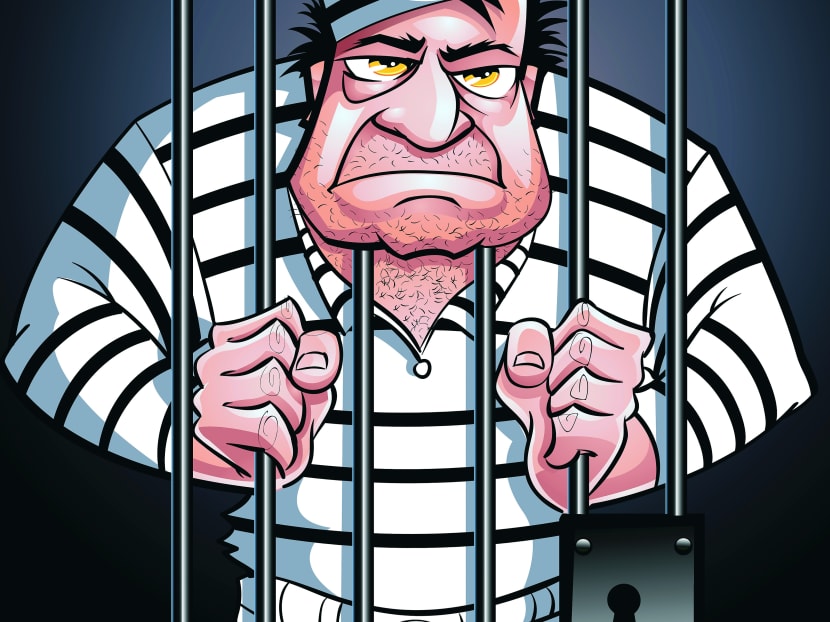The Troll Issue: The long arm of the law
SINGAPORE — The Protection From Harassment Act, which was passed on March 13, stemmed from a “real need” to better protect victims of harassment. And these new laws don’t just deal with physical harassment in the real world, but also in the virtual world. As Law and Foreign Affairs Minister K Shanmugam put it, online harassment is a social scourge; and standards of acceptable behaviour should be the same in the physical world and in the online sphere.

The law is clear, but the degree to which it can be implemented is subjective. Photo: Getty Images
SINGAPORE — The Protection From Harassment Act, which was passed on March 13, stemmed from a “real need” to better protect victims of harassment. And these new laws don’t just deal with physical harassment in the real world, but also in the virtual world. As Law and Foreign Affairs Minister K Shanmugam put it, online harassment is a social scourge; and standards of acceptable behaviour should be the same in the physical world and in the online sphere.
Section 3 of the Act makes it an offence for any person to intentionally cause harassment, alarm or distress to another person, whether by way of threatening, abusive or insulting words, behaviour or communications; while Section 4 states it is an offence for any person to cause harassment, alarm or distress by way of the offending actions (threatening, abusive or insulting words, behaviour or communications) which is heard, seen or otherwise perceived by that person. Unlike Section 3, here the offence does not require intention on the part of the accused.
Examples of such actions were given: If Person X repeatedly sends emails to Person Y with suggestive comments; or if X repeatedly circulates revealing photographs of Y to others — that’s harassment. If X and Y are classmates, and X posts a vulgar tirade against Y on a website accessible to all of their classmates, that’s harassment.
Now, whether an act amounts to harassment and thus should be punished will be decided by the courts, which will consider factors such as the nature of the act, the context in which it occurred and the effect it had on the victim.
WHAT’S THE PUNISHMENT
Just how will one be punished? The Act provides the court with a range of sentencing options, from fines to jail terms. For all offences under the Act, reasonableness can be used as a defence. Think you can get away with bad behaviour because you’re sitting at a computer overseas? Well, as former American President Ronald Reagan once said, you can run, but you can’t hide. The law applies to acts committed outside Singapore — under certain conditions, of course — where the victims are here and the harassers are outside Singapore, and vice versa.
Furthermore, the Act is meant to address the challenge of the anonymous and borderless nature of the online sphere, so if the actual identity cannot be ascertained, such a person may be identified by his username or account, Internet location address, website or email address.
That’s all fine and dandy, you say, but does it protect you from trolls? The Urban Dictionary defines trolls as those who typically unleash “one or more cynical or sarcastic remarks on an innocent bystander, because it’s the Internet and, hey, you can”.
Yes, trolls can be jerks, but it’s not against the law to be a jerk. Lawyers we spoke to were split about the effect the Act will have on trolling, but they agreed that one needs to look at the degree or level of participation by the trolls.
Said Choo Zheng Xi, Senior Associate at Peter Low LLC: “There is trolling that is relatively benign, and there is trolling that can be sustained and consistent. The line isn’t always too clear and, obviously, the degree to which it falls into any category is subjectively perceived because someone who would find a comment annoying or offensive could have a higher threshold than someone who is distressed or alarmed by it.”
“If you have 1,000 trolls, but only one or two are consistently fanning the fire and pushing the harassment in a certain direction, from their actions, they could be seen to be abetting the harassment,” said criminal defence lawyer Josephus Tan. “For example, A intended to harass B, but it was just a one-off comment. But thanks to a couple of trolls, they continued fanning the fire, so ultimately, the negative impact can’t solely be attributed to A, when all A did was to give a one-off comment … Harassment may have been intended, but perhaps not to the degree in which it eventually became.”
Concurred Choo: “Unless you are the primary cause of the harassment, it is unlikely that you are going to be in the crosshairs of the Act, especially in situations where the backlash comes about because … public outcry against someone’s silly comments went too far.”
HARASSMENT OR OPINION
There is also the argument that perhaps what trolls are doing isn’t harassment but merely giving reasonable opinions. Said Sunil Sudheesan, partner at RHTLaw Taylor Wessing LLP and the secretary of the Association Of Criminal Lawyers Of Singapore: “The law has to be balanced. The whole purpose is not to kill off free speech, but (to) guard against unnecessary harm to individuals.”
“Trolls thrive on anonymity, so the Act has some way to go in compelling the Internet providers to provide information as to the identity of the trolls (especially in egregious cases),” added Sunil. “The Act will not affect the majority of Internet users. It may affect some anti-social users who persist in unreasonable behaviour. Some users might as a result of the Act pause and consider the consequences of their words, and ideally even trolls will think about what they say before shooting their mouths — or keystrokes — off.”







